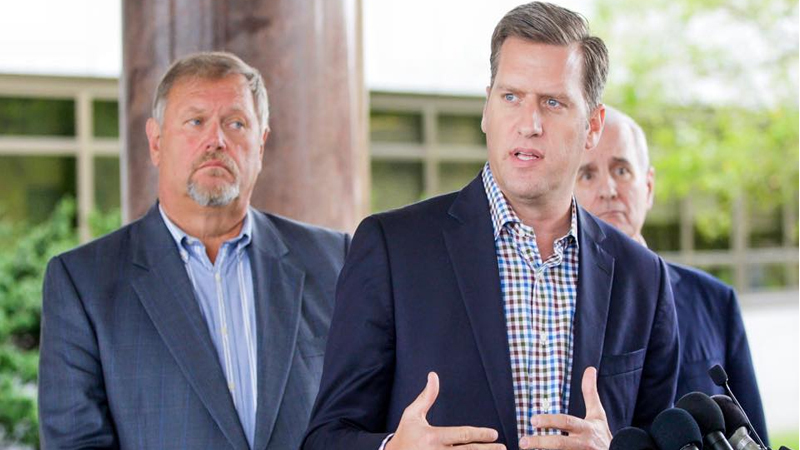Minnesota House of Representatives Minority Leader Kurt Daudt wants people to take COVID-19 seriously, but thinks the state’s risk assessment has become unbalanced, doing more harm than good. | Facebook
Minnesota House of Representatives Minority Leader Kurt Daudt wants people to take COVID-19 seriously, but thinks the state’s risk assessment has become unbalanced, doing more harm than good. | Facebook
With Minnesota following a more cautious path in terms of the response to COVID-19, some have begun to worry whether an overdose of restrictions could actually do more harm than is being prevented.
Minnesota House of Representatives Minority Leader Kurt Daudt (R-Crown) recently spoke with WCCO’s Chad Hartman about the state’s response to the coronavirus.
A member of the House Select Committee on Minnesota’s Pandemic Response and Rebuilding, Daudt repeatedly told Hartman that it’s important for people to take the coronavirus seriously, but that there is a balance that needs to be maintained to avoid actions that do more harm than good.
While Daudt encouraged everyone to follow guidelines for masks, social distancing and caring for those most at risk, he also said that society can’t remain frozen and the economy has to get reopened.
Daudt, who recently quarantined after having close contact with President Donald Trump just prior to Trump testing positive for the coronavirus, said the experience has not changed his views.
“I think that people need to take COVID seriously, but we also need to live our lives,” Daudt told Hartman. “I worry a lot about the mental health impact on kids, not being in school, and folks being isolated from their loved ones.”
In the case of schools, where studies have repeatedly shown young children are at low-risk for either transmitting or contracting the coronavirus, Daudt told Hartman that the state needs to take care of the children’s educational and socialization needs. He also feels local school districts should get the final say, and be able to tailor their procedures to their communities.
“I worry most about these young kids and not being in school,” he told Hartman.
Minnesota has the largest achievement gap in the country, with low-income and minority students falling far behind white, middle- to high-income students, he said.
“And that’s shameful already, by itself,” Daudt told Hartman.
Yet, those students are the ones most likely to be learning remotely, and will be even further behind as a result.
At the same time, remote learning should be available for families – particularly those with an at-risk family member – if they choose it, Daudt told Hartman.
Additionally, with the current indicators that more businesses – possibly as many as 40% of restaurants – could fail and close permanently if they aren’t able to operate more fully. Daudt told Hartman that he would like to see some of those restrictions eased.
“It’s unconscionable to think that we should destroy peoples’ lives and family businesses and life savings, because we’re overreacting to the virus,” Daudt told Hartman.
Daudt said he worries that, when the coronavirus pandemic is past, society may find that many restrictions did more harm than they prevented, by visiting long-term health and economic consequences on our most vulnerable populations.
“I hope that’s not the case, but it sure appears that the cure here might be worse than the actual virus,” he told Hartman.

 Alerts Sign-up
Alerts Sign-up